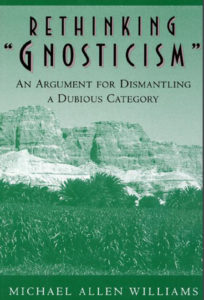What is reality? You probably think that it’s comprised of your body, what exists physically, and other tangible things like the inevitability of death. You may also find the Christian ideas of resurrection, spirit, and truth to be illusory– perhaps to be believed, but not able to be grasped as “real”. However, some early Christian writers– like the Valentinian author of The Treatise on Resurrection — held the opposite view.
Those Christians considered the physical and material world to be illusory, and spirituality to be what is “real”. Central to this idea was the presentness of resurrection and its implications for achieving spiritual peace. What did this author mean by resurrection? Why was he skeptical of the reality of the material world? And what did he think this meant for the Christians of his time? It all starts, according to the Treatise on Resurrection, by understanding when Jesus died!

When Did Christ Die?
When asked when Jesus died, you probably answered, “at his crucifixion”. However, for the author of this text, that is incorrect. The Treatise argues that death is not something that merely occurs at the end of life; rather, it is an essential quality of the world, of the “law of nature, which I call death”. The very fact that we are physical and material creatures means, in some very real sense, that we are already dead– what we call “life” is really the process of dying, and we– just like every other living (and even non-living) material thing– are fundamentally condemned to death and destruction.
The very thing we call “life”, then, is false– in reality, it is death. Christ, for the author of the Treatise, preexisted in a realm above death as “from above, a seed of truth” who existed “before the structure of the world, with all its dominions and deities, came into being”. By living as a human,
“[He] embraced both aspects, humanity and divinity, so that by being a son of God he might conquer death, and by being a son of humanity fullness might be restored”
What does this mean for us? The author of the Treatise thought that Paul showed the way.
Want to learn more? Click below to keep reading!

 discussing early Christianity and non-canonical texts, the words “Gnostic” and “Gnosticism” gets thrown constantly. In his compelling book “
discussing early Christianity and non-canonical texts, the words “Gnostic” and “Gnosticism” gets thrown constantly. In his compelling book “